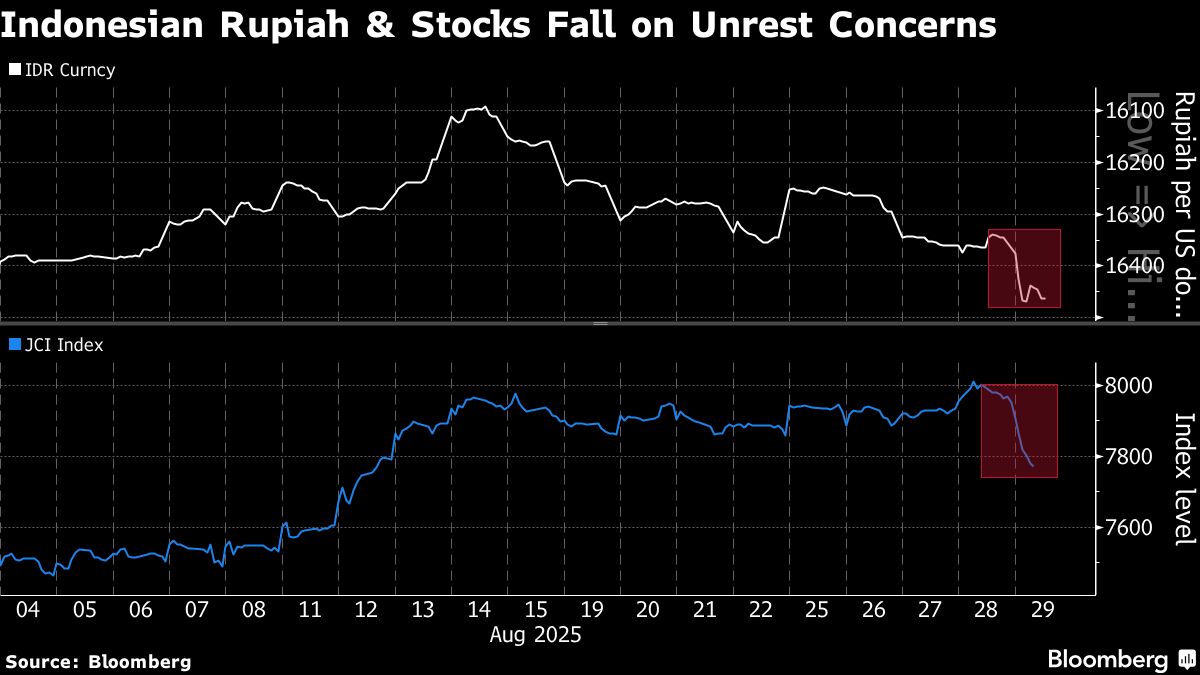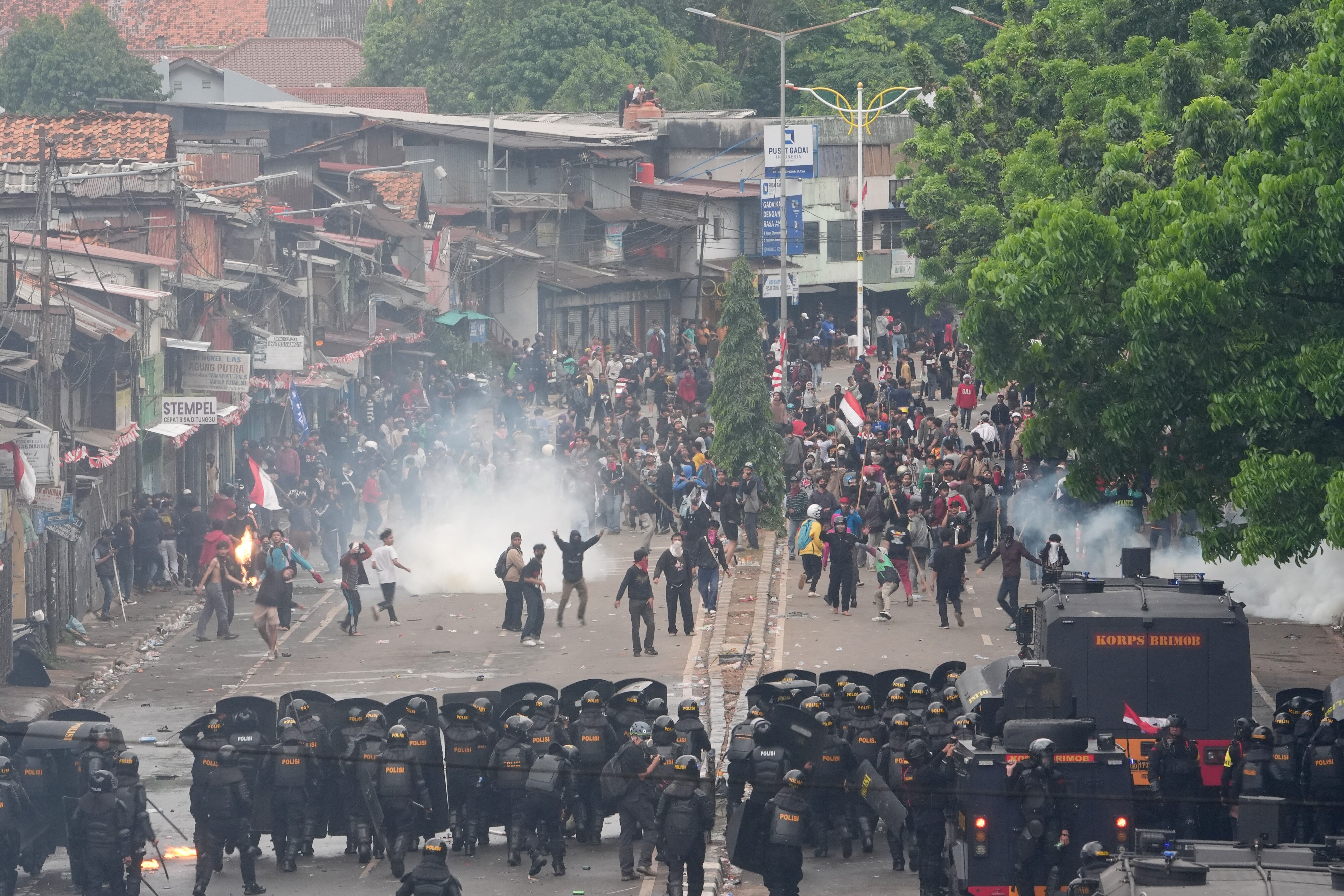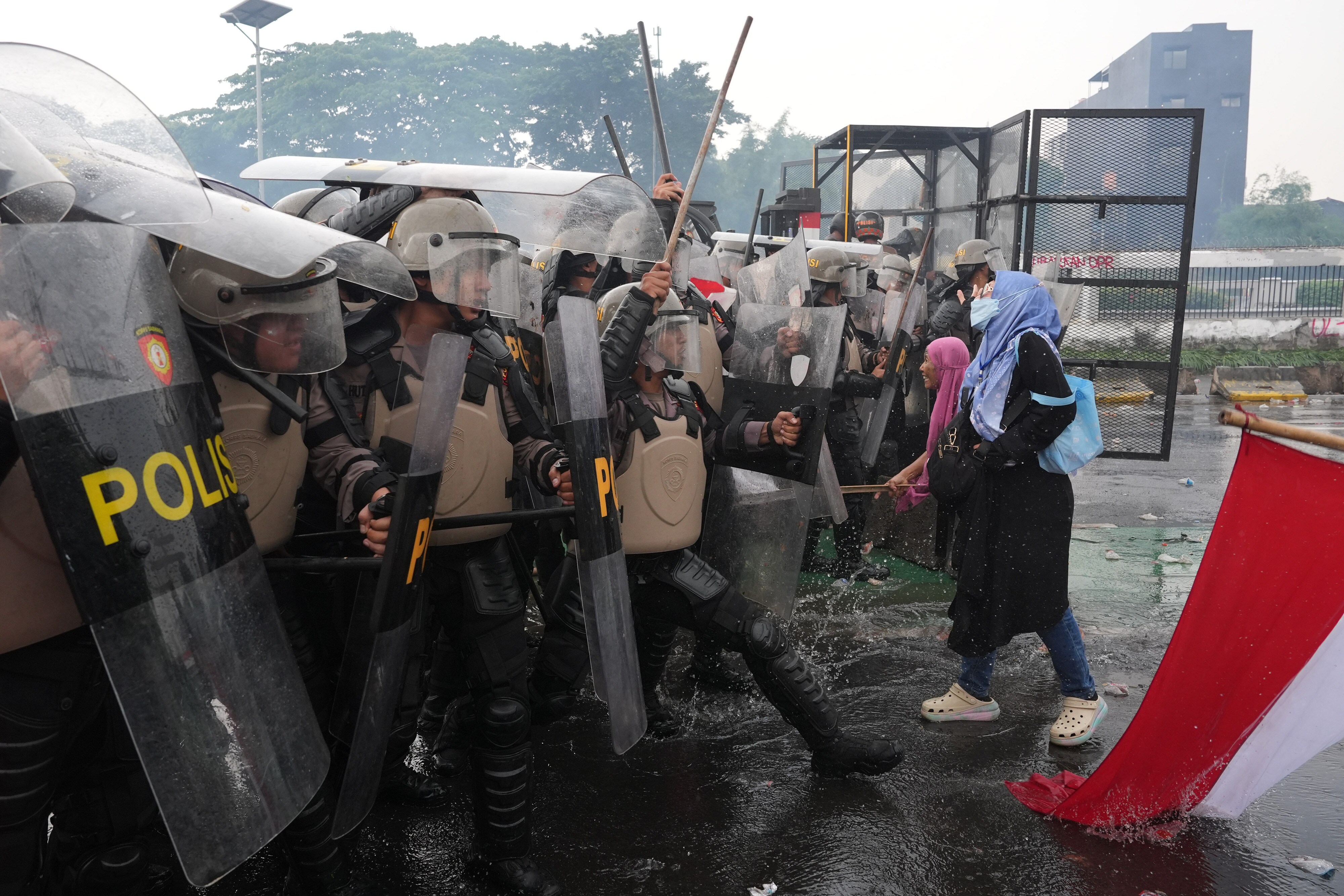
Indonesian President Prabowo Subianto called for calm as authorities sought to contain rising public anger that has fueled nationwide protests for a third day and rattled investor confidence, sending the nation's currency and stocks lower.
The demonstrations Friday reflected acute anger over the death of a motorcycle taxi driver struck by a police vehicle during clashes the previous night. But the unrest follows a series of protests stretching back to the start of Prabowo's term fueled by economic anxiety, marking the most serious political test of his presidency.
In his first remarks since the protests erupted this week, Prabowo criticized the police over the death and promised to hold officers accountable. Thousands took to the streets the day before to oppose lawmakers' excessive allowances and demand an increase in minimum wage.
“I am shocked and disappointed by the excessive actions of the officers,” Prabowo said in a televised address. He also called on Indonesians to remain calm and be vigilant against “elements that always want to cause unrest and chaos.”
Indonesian stocks pared earlier losses to close 1.5% lower on Friday, while the rupiah lost 0.9% — both the worst performers in Asia as the escalating unrest unnerved investors. Yields on 5- and 10-year government bonds saw their biggest jumps in months, soaring 8.5 basis points and 7.7 basis points, respectively. Bank Indonesia said it was ready to intervene to stabilize the currency and ensure it trades according to fundamentals.

Members of the army and navy helped secure parts of Jakarta as hundreds of motorcycle taxi drivers gathered at the headquarters of the police's mobile brigade corps on Friday morning. Protesters burned cars and hurled rocks, while riot police used tear gas to try to disperse the crowds.
More than a thousand university students, motorcycle taxi drivers and workers also gathered in front of the national police headquarters, waving flags and shouting, “The police are killers!”
Organizers are demanding the removal of the police chief and accountability for recent arrests and violence against protesters, a student spokesman said in a text message.

Protesters clash with police in Jakarta on Aug. 28.
The events on Friday appeared to illustrate the divide in public perceptions of the police and the military, which Prabowo, an ex-general, has supported.
Some protesters agreed to disperse after the army mediated talks between them and the police, Bloomberg Technoz reported, citing Intelligence Assistant to the Kostrad Chief of Staff Muhammad Nas. They were seen cheering in social media posts as the army arrived at the police headquarters in Senen, Jakarta.
While Prabowo has pledged to battle corruption and create jobs, massive layoffs and weakening purchasing power have sparked discontent in Southeast Asia's largest economy.
The unrest has heightened concerns about Prabowo's ability to manage political dissent. Rights groups have warned that a crisis of trust could unfold if those responsible for the fatality are not held accountable. Police have apologized and are investigating the seven officers who were inside the vehicle.

Protesters outside the parliament building in Jakarta on Aug. 28.
Several government meetings set for Friday have been canceled, including the Finance Ministry's monthly budget briefing and a separate national inflation coordination meeting where Prabowo was due to speak. Many companies have also instructed their employees to work from home, while major roads in the capital were closed.
The recent protests in Jakarta “have increased volatility in Indonesia's markets,” said Shier Lee Lim, lead currency and macro strategist at Convera Singapore. “The rupiah, equities and bonds have all come under pressure as investors reassess the risks of heightened policy uncertainty and social unrest.”
Foreign flows have turned negative in the past two days as international investors may be “getting slightly nervous about the domestic unrest,” said Bloomberg Intelligence's equity strategist Sufianti. “It seems to me it's more of a short-term selloff, but if it escalates further, then it could turn into a real risk.”
Essential Business Intelligence, Continuous LIVE TV, Sharp Market Insights, Practical Personal Finance Advice and Latest Stories — On NDTV Profit.























